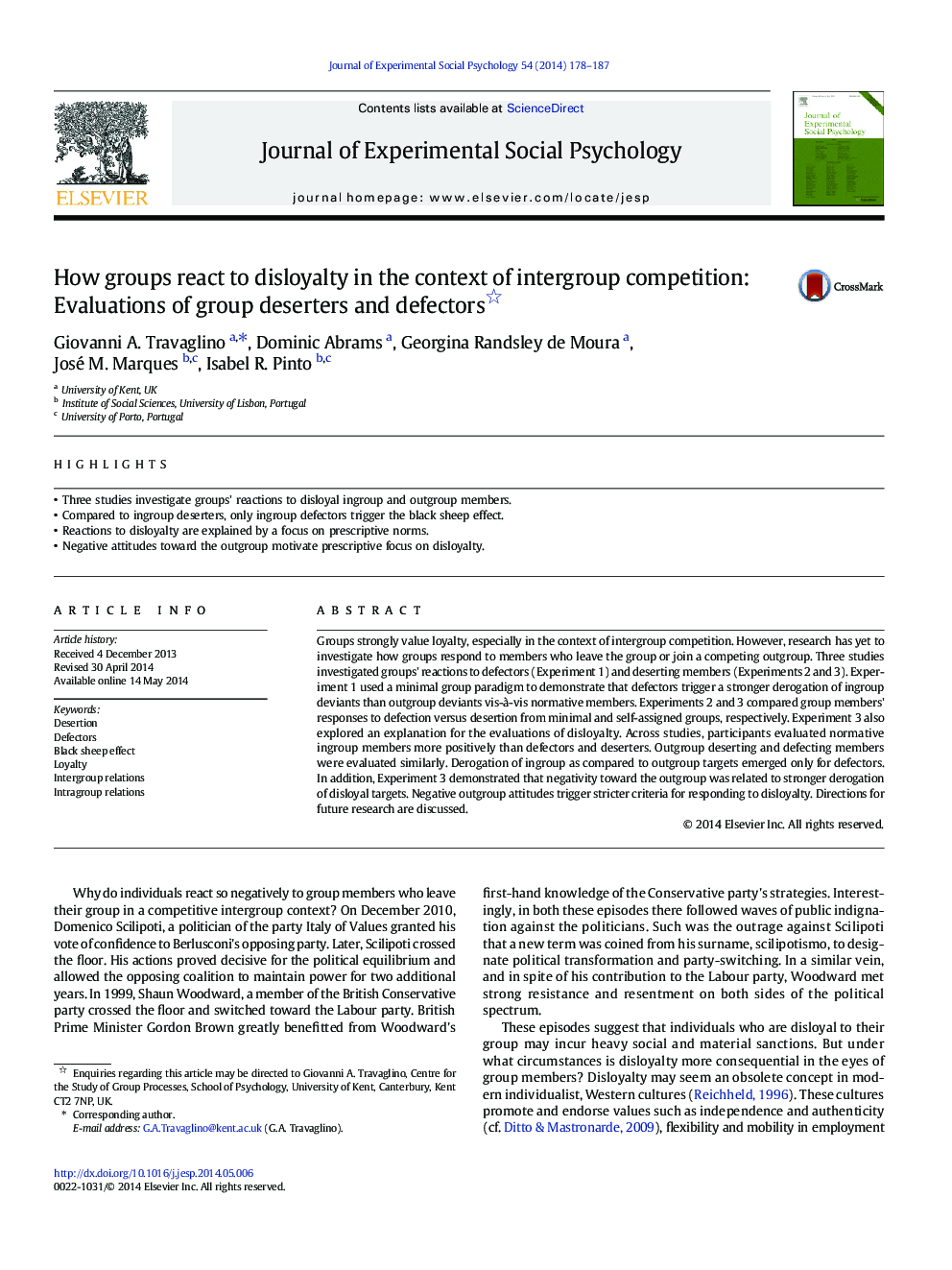| کد مقاله | کد نشریه | سال انتشار | مقاله انگلیسی | نسخه تمام متن |
|---|---|---|---|---|
| 947813 | 1475869 | 2014 | 10 صفحه PDF | دانلود رایگان |
• Three studies investigate groups' reactions to disloyal ingroup and outgroup members.
• Compared to ingroup deserters, only ingroup defectors trigger the black sheep effect.
• Reactions to disloyalty are explained by a focus on prescriptive norms.
• Negative attitudes toward the outgroup motivate prescriptive focus on disloyalty.
Groups strongly value loyalty, especially in the context of intergroup competition. However, research has yet to investigate how groups respond to members who leave the group or join a competing outgroup. Three studies investigated groups' reactions to defectors (Experiment 1) and deserting members (Experiments 2 and 3). Experiment 1 used a minimal group paradigm to demonstrate that defectors trigger a stronger derogation of ingroup deviants than outgroup deviants vis-à-vis normative members. Experiments 2 and 3 compared group members' responses to defection versus desertion from minimal and self-assigned groups, respectively. Experiment 3 also explored an explanation for the evaluations of disloyalty. Across studies, participants evaluated normative ingroup members more positively than defectors and deserters. Outgroup deserting and defecting members were evaluated similarly. Derogation of ingroup as compared to outgroup targets emerged only for defectors. In addition, Experiment 3 demonstrated that negativity toward the outgroup was related to stronger derogation of disloyal targets. Negative outgroup attitudes trigger stricter criteria for responding to disloyalty. Directions for future research are discussed.
Journal: Journal of Experimental Social Psychology - Volume 54, September 2014, Pages 178–187
